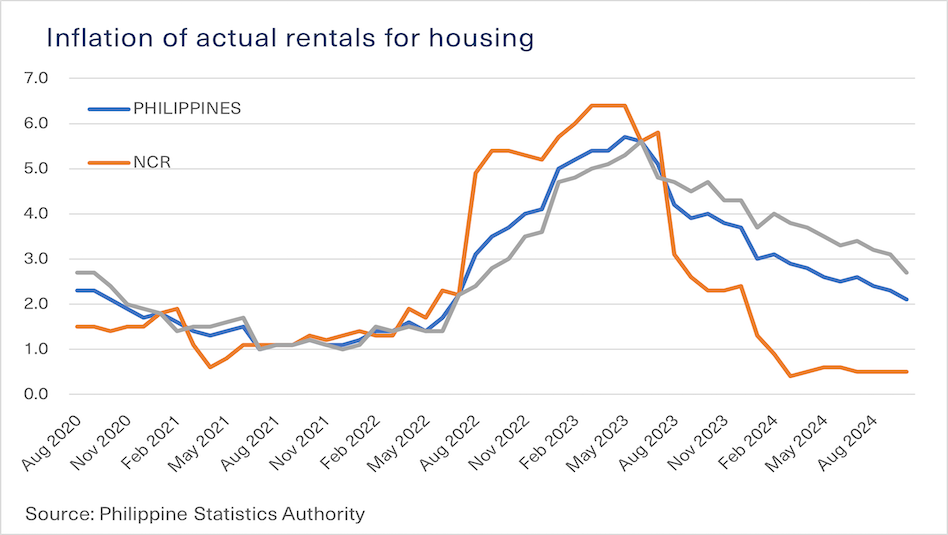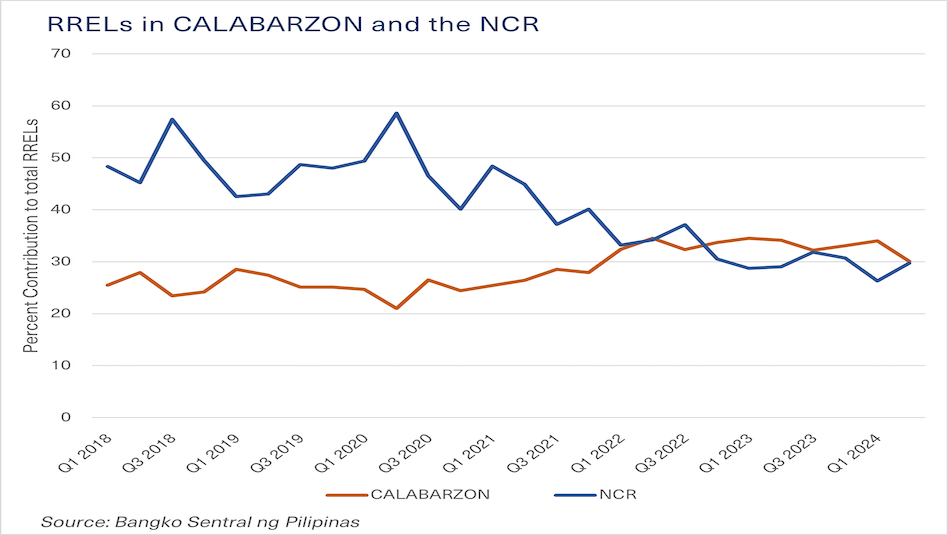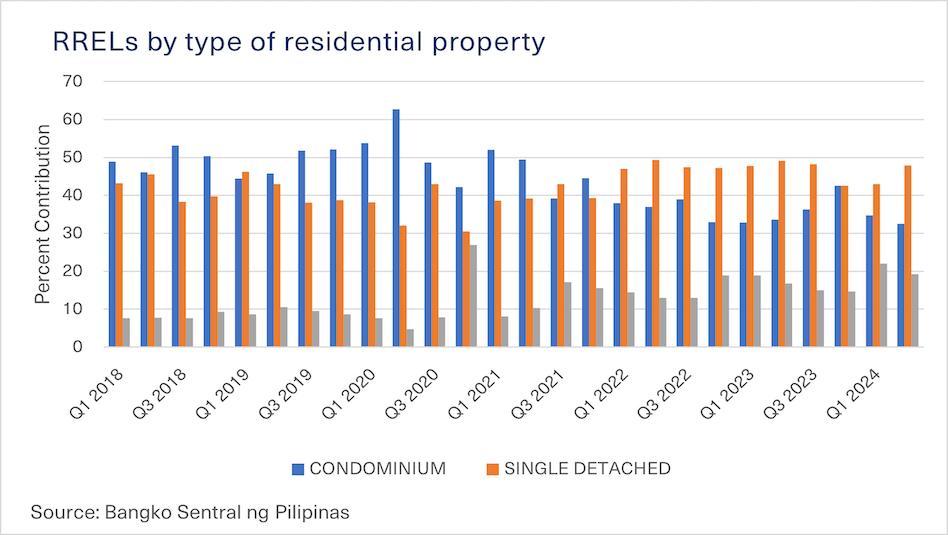Housing rent prices stay sticky amid POGO ban
Housing rent is among top inflation drivers, undeterred by ban on China-centric online casinos.

The telltales of a China-centric online casino boom – from rows of hotpot restaurants to Chinese-language ads and signages in fringes of Metro Manila’s business districts – begin to disappear. Yet one thing remains unwavering: pricey housing rent.
The rental market has yet to see a major price correction four months after President Ferdinand Marcos Jr. ordered a total ban by yearend on online gaming companies that mainly cater to mainland Chinese clients, known as Philippine Offshore Gaming Operators or POGOs.
Along with the POGO boom came an influx of mostly Chinese and Chinese-speaking foreign workers. They flocked to pockets of the capital region, boosting rental prices.
During the industry’s peak in 2019, property services firm Colliers Philippines estimated average rent across the capital region rose 6.9% year-on-year. That year, average housing inflation quickened to 3.1% from 2.7%, statistics agency data showed.
Though the ban may curb demand for residences, the sticky nature of rents along with locals’ preference to lease in the capital region will support prices through 2024. Home rentals may continue to be among the top contributors to headline inflation in the coming months.
Gradual exit
An abrupt POGO ban, in theory, would stoke vacancies in the residential property, as operators use large swaths of apartments to house their employees.
POGOs peaked at 300 in 2019. Growing local opposition and accusations of money laundering and human trafficking resulted in calls for tighter regulations and slowly forced POGOs out of the country. Operators total only 27 as of November 18, according to Joseph Lobo, an official at the state’s gaming regulator.
Should the president’s ban be enforced by yearend, its impact on the real estate market may not be as significant as it seemed.
Key driver
Demand eased and vacancies rose, as foreign POGO workers faced loss of employment opportunity here. This led to concerns by property consultancy executives of rents plummeting 50%.
Still, annual housing rental inflation was 0.5% in Metro Manila from August to October. Areas outside the capital saw annual rent rise 3.1% in September and 2.7% in October. While the increases slowed from their peak, housing rentals remained among the top drivers of headline inflation.
Sticky rents

Unlike other commodities that easily change prices based on demand and supply, rent takes time to adjust. Lease agreements typically specify a fixed price and tenancy. Searching for and changing apartments is also costly, which can discourage renters from moving whenever there’s a dip in the property market.
Even if the ban results in a significant decrease in demand, rental prices plummeting by half is unlikely.
New preferences
People also looked outside Metro Manila to buy residential property, as preferences may have shifted to larger cuts of real estate. The likely shift in demand from owning homes within the capital region to renting supported rental prices.
Since 2022, the proportion of residential real estate loans (RRELs) in provinces south of the capital region has surpassed the share of Metro Manila – which historically accounted for the bulk, central bank data showed.

The number of loans taken out for townhouses also outnumbered those taken out for condominium units since the second quarter of 2022, according to central bank data.

Inflation impact
Actual rentals for housing will remain a top contributor to inflation. Currently, it contributes 12.8% to the overall Consumer Price Index (CPI). Still with the slower annual increase in rental prices, we believe full-year inflation in 2024 will still settle within the target of the Bangko Sentral ng Pilipinas (BSP).
(If you are a Metrobank client, please get in touch with your relationship manager, account manager, or investment specialist for more information. Not a client yet? Please sign up here so you can begin your wealth journey with us.)
Yoshitaka Hirakawa is a Research Analyst of the Research and Market Strategy Department, Institutional Investors Coverage Division, Financial Markets Sector, at Metrobank. He holds a Bachelor’s in Management Engineering from Ateneo de Manila University. With a background in data-driven decision making and quantitative methods, he aims to provide meaningful insights. Hungry for adventure, he constantly seeks new sights, sounds, and experiences, from cliff jumping to trying new cuisines.
Ezra Vidar is a Research Analyst of the Research and Market Strategy Department, Institutional Investors Coverage Division, Financial Markets Sector, at Metrobank. She graduated from the University of the Philippines – Diliman with a degree in BS Business Economics. In her free time, she likes listening to Twice and Taylor Swift.







 DOWNLOAD
DOWNLOAD




 By Yoshitaka Hirakawa and Ezra Vidar
By Yoshitaka Hirakawa and Ezra Vidar